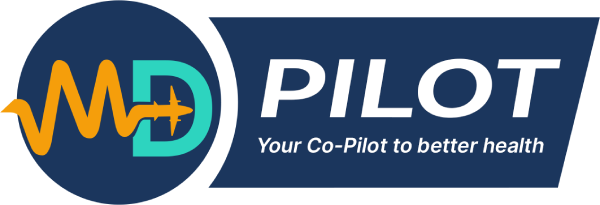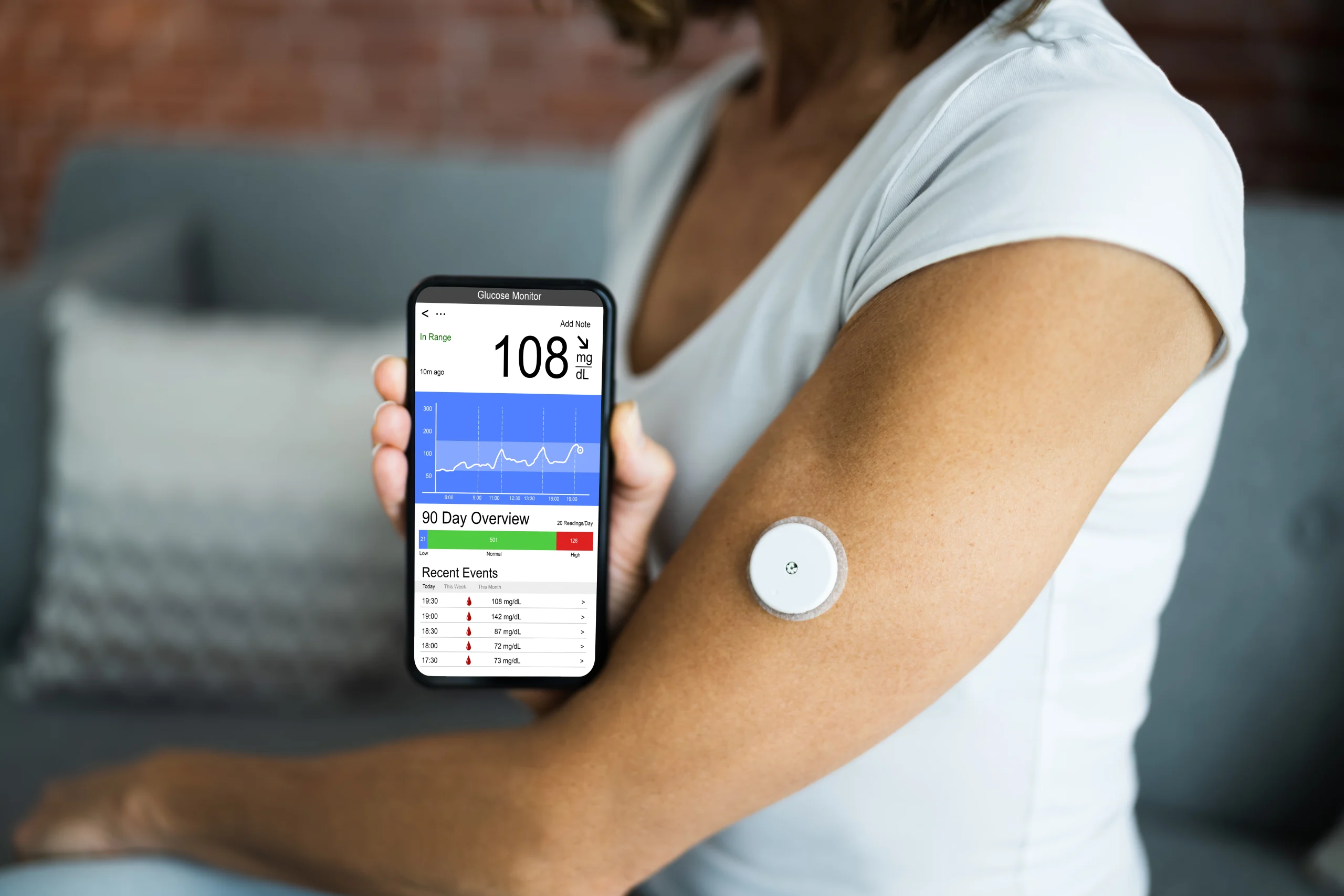Table Of Contents
-
Key Highlights
-
Top Free Insulin Counter and Calculator Apps Compared
-
How Insulin Calculator Apps Work: From Logbooks to Advanced Guidance
-
What to Look for in a Safe Insulin Counting App
-
Interactive App Selection Tool
-
Real-World Experiences: Who Benefits Most from Free Insulin Apps?
-
Frequently Asked Questions
-
Expert Tips for Maximizing Your Insulin App's Value
-
Safety Considerations and Limitations
-
Conclusion
-
References
Key Highlights
- Several free insulin counter apps have clinical validation: mySugr, Glucose Buddy, Diabetes:M, and Blood Sugar Tracker-Diabetes are backed by research studies and healthcare provider recommendations.
- Free versions have limitations: Most free insulin dose calculators offer basic features compared to premium versions—careful feature comparison is essential before downloading.
- Essential features for insulin users: Look for automatic and manual insulin logging, carb/food tracking, blood glucose meter sync, data export capabilities, and customizable reminders.
- mySugr leads in clinical evidence: Randomized controlled trials show improved diabetes self-management and sustained user engagement, while Glucose Buddy remains popular among iPhone users.
- User-friendliness matters: Apps designed for both teens/adults and caregivers with clear interfaces drive higher satisfaction and consistent usage.
- Medical supervision is non-negotiable: These apps supplement—never replace—professional medical advice. Always consult your healthcare team before making insulin dose changes based on app recommendations.
- Privacy and regulatory status vary: Check data protection policies, regulatory approval status, and language/localization options when selecting your insulin management app.
Top Free Insulin Counter and Calculator Apps Compared
The market offers numerous diabetes app for insulin tracking options, but only a select few combine robust features with clinical validation. Based on recent research analyzing over 10,000 diabetes app users, these top-rated free insulin counter apps stand out for their effectiveness and user satisfaction.
| App Name | Platform | Key Features (Free) | Clinical Evidence | Best For |
|---|---|---|---|---|
| mySugr | iOS, Android | Insulin logging, carb tracking, blood glucose sync, PDF reports | Multiple RCTs showing improved HbA1c | Type 1 diabetes, comprehensive tracking |
| Glucose Buddy | iOS, Android | Insulin tracking, medication reminders, food logging | Clinical studies on diabetes self-management | iPhone users, medication management |
| Diabetes:M | iOS, Android | Bolus calculator, comprehensive logbook, data export | Real-world evidence studies | Advanced users, detailed tracking |
| Blood Sugar Tracker | Android | Insulin logging, BG tracking, medication records | User satisfaction surveys | Android users, simple interface |
| Selfcare | iOS, Android | Logbook features, sensor sync, reminders | Qualitative user research | CGM users, sensor integration |
mySugr: The Clinical Leader
With the strongest clinical research backing, mySugr stands out as the most validated insulin calculator app. Recent randomized controlled trials published in BMC Public Health demonstrate that mySugr users show significant improvements in diabetes self-management behaviors and HbA1c levels ranging from 0.39% to 1.95% reduction.
Glucose Buddy: iPhone Excellence
Popular among iOS users, Glucose Buddy offers seamless iPhone integration and intuitive design. The app’s strength lies in its medication reminder system and comprehensive food database, making it an excellent free diabetes app for insulin doses management.
Diabetes:M: Advanced Tracking Capabilities
Designed for users who want comprehensive diabetes management, Diabetes:M offers one of the most sophisticated free bolus calculator apps available. The app excels in detailed data logging with features including advanced carb counting, insulin-to-carb ratio calculations, and extensive data export options. Its comprehensive logbook functionality makes it particularly valuable for users who need detailed tracking for healthcare provider consultations.
Blood Sugar Tracker: Android Simplicity
Specifically optimized for Android users, Blood Sugar Tracker-Diabetes provides a clean, straightforward interface for essential insulin management app functions. The app focuses on core features including insulin dose logging, blood glucose tracking, and medication records without overwhelming users with complex features. Its simplicity makes it ideal for those new to digital diabetes management or users who prefer streamlined functionality.
Selfcare: CGM Integration Leader
For users with continuous glucose monitors, Selfcare stands out as a CGM compatible app with excellent sensor integration capabilities. The app specializes in combining traditional logbook features with modern sensor data, providing comprehensive glucose trend analysis and automated data syncing. Research shows high user satisfaction among CGM users who value seamless device connectivity and real-time glucose monitoring integration.
How Insulin Calculator Apps Work: From Logbooks to Advanced Guidance
Modern insulin dose calculator apps have evolved far beyond simple digital logbooks. Understanding how these tools process your diabetes data helps you maximize their effectiveness and safety.
Basic vs. Smart Insulin Calculators
Today’s bolus calculator apps fall into two categories:
- Manual logbook apps: Record insulin doses, blood sugar readings, and meals for pattern tracking
- Smart calculators: Use algorithms to suggest insulin doses based on carbohydrate intake, current blood glucose, and insulin-to-carb ratios
Integration with Glucose Meters and CGMs
The most effective type 1 diabetes apps integrate directly with continuous glucose monitors (CGMs) and blood glucose meters. This integration provides:
- Automatic blood sugar data import
- Real-time glucose trend analysis
- Automated insulin dose suggestions based on current readings
- Historical pattern recognition for dose adjustments
 Important Safety Note:
Important Safety Note:
No app should replace medical supervision. Always verify app-suggested doses with your healthcare provider’s guidelines and use your clinical judgment.
What to Look for in a Safe Insulin Counting App
Selecting a safe insulin management app requires careful evaluation of medical validation, privacy protection, and user safety features. With diabetes management being life-critical, these considerations cannot be overlooked.
Medical Validation and Accuracy
Look for apps that demonstrate:
- Clinical trial evidence: Published studies showing effectiveness and safety
- Healthcare provider endorsement: Recommendations from diabetes organizations
- Regulatory compliance: FDA or international medical device approvals where applicable
- User testing feedback: Transparent reporting of user satisfaction and accuracy metrics
Essential Feature Matching
Match app features to your specific needs:
- Dose reminders: Customizable alerts for insulin timing
- Data export: Easy sharing with healthcare providers
- Caregiver access: Family member monitoring capabilities
- Offline functionality: Works without internet connection
- Multi-language support: Available in your preferred language
Data Privacy and Security
Essential privacy features include:
- HIPAA compliance for US users
- GDPR compliance for European users
- Clear data sharing policies
- Local data storage options
- Secure data transmission protocols
Interactive App Selection Tool
Find Your Perfect Insulin Counter App
Answer these questions to get a personalized recommendation:
Your Recommended App:
Real-World Experiences: Who Benefits Most from Free Insulin Apps?
Research involving over 1,000 diabetes app users reveals distinct patterns in who benefits most from diabetic logbook apps and insulin tracking tools. Understanding these user profiles helps predict your likelihood of success with these digital tools.
Young Adults with Type 1 Diabetes
The most successful app users are typically aged 16-35 with Type 1 diabetes. They report:
- 98% satisfaction with app-based diabetes management
- Improved HbA1c levels within 3-6 months of consistent use
- Better communication with healthcare providers through data sharing
- Increased confidence in insulin dose adjustments
Caregivers and Parents
Parents of children with diabetes find insulin pen smart apps particularly valuable for:
- Monitoring their child’s diabetes management remotely
- Coordinating care between multiple caregivers
- Maintaining detailed records for healthcare visits
- Teaching diabetes management skills to their children
Type 2 Diabetes Insulin Users
Adults with Type 2 diabetes using insulin report mixed experiences:
- Higher success rates with simpler, focused apps
- Preference for medication reminder features
- Value integration with other health metrics (blood pressure, weight)
- Need for clear, large text interfaces
Frequently Asked Questions
Yes, both mySugr and Diabetes:M offer free insulin calculators and logging features suitable for Type 1 and Type 2 diabetes. However, some advanced features may require premium upgrades. The free versions provide essential insulin tracking, carb counting, and basic dose calculations that work effectively for both diabetes types.
Insulin counter apps are excellent tools for tracking and pattern recognition, but should never be your sole source for dosing decisions. Clinical studies show these apps help improve diabetes management when used alongside professional medical guidance. Always verify app suggestions with your healthcare provider’s recommendations and your own clinical experience.
A bolus calculator specifically helps determine mealtime insulin doses by factoring in carbohydrate intake, current blood glucose, and your insulin-to-carb ratio. An insulin calculator is broader, potentially covering basal insulin tracking, correction doses, and total daily insulin management. Most comprehensive apps include both functions.
Many apps offer family-friendly features with caregiver access and age-appropriate interfaces. mySugr and Glucose Buddy both provide parental controls and shared access features. However, pediatric diabetes management should always involve healthcare providers, and apps should be introduced gradually with proper education and supervision.
Yes, several free apps integrate with CGM systems. mySugr connects with various CGM devices, though some integration features may require premium subscriptions. Glucose Buddy and Selfcare also offer CGM compatibility. Check the specific app’s device compatibility list before downloading.
mySugr offers basic insulin logging and calculation features for free, including dose tracking and simple carb counting. Advanced features like detailed analytics, unlimited photo uploads, and automatic CGM sync require mySugr Pro. Some health insurance plans cover the Pro version, so check with your provider.
Reputable free insulin apps implement HIPAA compliance (US) and GDPR compliance (Europe) with encrypted data transmission and secure storage. Always review the app’s privacy policy before use, and look for options to store data locally on your device. Avoid apps that don’t clearly explain their data handling practices.
Expert Tips for Maximizing Your Insulin App's Value
Getting the most from your chosen app for carb counting and insulin calculation requires strategic setup and consistent use. Healthcare providers and experienced users share these proven strategies for success.
Initial Setup Best Practices
Proper app configuration is crucial for accurate insulin dose recommendations:
- Enter accurate insulin-to-carb ratios: Work with your healthcare provider to determine precise ratios for different times of day
- Set up correction factors: Input your insulin sensitivity factor for high blood sugar corrections
- Configure reminders strategically: Set alerts for testing times, not just dose times
- Sync devices early: Connect glucose meters and CGMs during initial setup
Daily Usage Strategies
Consistent daily habits maximize app effectiveness:
- Log all insulin doses immediately after administration
- Use photo features to document meals for carb counting accuracy
- Review daily summaries each evening to identify patterns
- Export weekly reports before healthcare appointments
Data Sharing with Healthcare Providers
Most CGM compatible apps offer easy data export options:
- PDF reports for printed sharing
- Cloud-based sharing with provider access
- Direct email functionality
- Integration with electronic health records where available
Safety Considerations and Limitations
While free insulin counter apps provide valuable support for diabetes management, understanding their limitations ensures safe and effective use. Recent surveys indicate that 22-35% of potential users have concerns about app safety and accuracy.
Regulatory Status
Most consumer diabetes apps are not classified as medical devices by the FDA. This means:
- Apps don’t undergo the same rigorous testing as medical devices
- Insulin dose suggestions should be verified independently
- Apps are tools to support, not replace, medical decision-making
- Users maintain full responsibility for insulin dosing decisions
Technical Limitations
Free apps may have technical constraints:
- Limited data storage capacity
- Reduced customer support
- Fewer integration options with medical devices
- Basic analytics compared to premium versions
Conclusion
The landscape of free insulin counter apps in 2024 offers unprecedented opportunities for effective diabetes management. With clinically validated options like mySugr leading the field and user-friendly alternatives like Glucose Buddy providing platform-specific excellence, people with diabetes have access to powerful digital tools that can significantly improve their daily management routines.
The key to success lies in matching app features to your specific needs, maintaining consistent usage habits, and always keeping professional medical guidance at the center of your diabetes care. Whether you’re managing Type 1 diabetes with complex insulin regimens or Type 2 diabetes with simpler dose tracking needs, the right insulin counter app can transform your relationship with diabetes management.
Remember that these apps are powerful tools in your diabetes management toolkit, but they work best when combined with regular healthcare provider consultations, proper diabetes education, and your own experience and judgment. Start with one of the clinically validated options discussed in this guide, take time to properly configure the app for your needs, and be patient as you develop new digital habits.
Take the first step today by downloading one of these evidence-based insulin counter apps and begin experiencing the benefits of digital diabetes management. Your future self—and your HbA1c—will thank you for making this important investment in your health.
References
- BMC Public Health. (2024). Exploring mHealth app utilization for diabetes self-management. Large-scale survey of diabetes app usage patterns and effectiveness.
- Hormones (Athens). (2025). Randomized controlled trial with mySugr in Type 1 Diabetes Management. Clinical evidence for app-based diabetes improvement.
- Diabetes Therapy. (2025). Digital Health Technology in Diabetes Management in the Asia–Pacific Region. Comprehensive review of diabetes app features and clinical outcomes.
- Digital Health. (2024). Living with my diabetes – introducing eHealth into daily practices. Qualitative research on user experiences with diabetes apps including Selfcare, mySugr, and MiGuide.
- American Diabetes Association. (2024). Technology and Devices for Diabetes Management. Official guidance on safe use of diabetes technology and apps.
- FDA. (2024). Medical Device Software Guidance. Regulatory framework for mobile medical applications.
- mySugr. (2024). mySugr Diabetes App. Official app website with feature descriptions and clinical evidence.
- Glucose Buddy. (2024). Glucose Buddy Diabetes Tracker. Comprehensive diabetes tracking application for iOS and Android.
- Healthline. (2024). Best Diabetes Apps for 2024. Consumer guide to diabetes management applications.
- National Institute of Health. (2024). Diabetes management app recommendations and regulatory guidelines. Government guidance on digital diabetes tools.
Disclaimer:
The information provided on MD-Pilot is for educational and informational purposes only. It is not intended as a substitute for professional medical advice, diagnosis, or treatment. Always seek the advice of your physician or other qualified healthcare provider with any questions you may have regarding a medical condition. Never disregard professional medical advice or delay in seeking it because of something you have read on this website.
Recomended Articles
View AllWeekly Health Intel
Get evidence-based health tips, latest research, and exclusive guides delivered weekly




